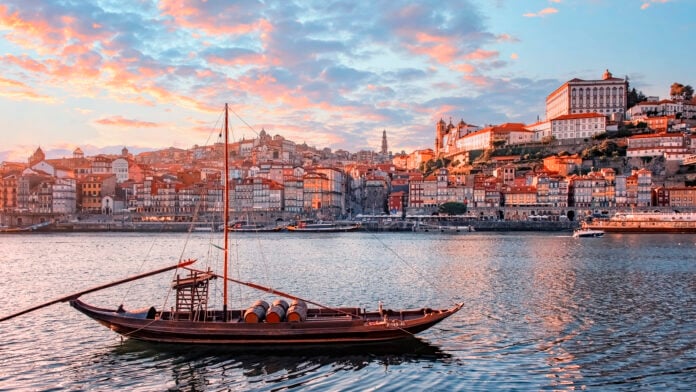If you are considering Portugal, whether to retire, relocate, invest, or simply secure a “Plan B,” you are far from alone. Portugal remains one of the most attractive countries in Europe thanks to its quality of life, excellent healthcare, safety, tax benefits, and EU access.
The big question for many is: which visa is right for me, the D7 or the Golden Visa? Both can lead to residency and citizenship, but they serve very different goals.
The D7 Visa: For Those Ready to Build a Life Here
Often called the “passive income visa,” the D7 is aimed at people who can support themselves through pensions, rental income, dividends, royalties, or remote work.
Think of the D7 as the visa for a full-time life in Portugal. To qualify, you must show a stable passive income of at least €870 per month in 2025 for a single applicant, with higher thresholds for dependents. In return, you commit to living in Portugal for at least 183 days a year.
The benefits are clear. You become a tax resident, you gain access to healthcare, your children can enter the education system, and after five years you can apply for permanent residency or citizenship.
For retirees and remote workers who want to immerse themselves in Portuguese life, this is often the simplest and most affordable option.
The Golden Visa: Residency through Investment
Launched in 2012, the Golden Visa was designed to attract foreign investment. Real estate was phased out in 2023, so the program now focuses on other qualifying options such as:
- €500,000 in an approved investment fund
- €250,000 in cultural heritage or the arts (lower thresholds apply in some regions)
- €500,000 in scientific research
- Job creation through a company in Portugal
The main attraction of the Golden Visa is the flexibility. You are only required to spend seven days in Portugal in the first year and fourteen days in every two-year renewal period. This makes it ideal if you want the security of EU residency but are not ready to move full-time.
It does require significant capital, between €250,000 and €500,000 depending on the route. However, for many investors and families, the minimal stay requirement makes this an attractive option.
Key Differences
- Purpose: The Golden Visa is tailored for investors who want maximum flexibility. It allows you to secure Portuguese residency without committing to living there full-time, making it ideal for busy professionals, frequent travelers, or those who value international mobility. By contrast, the D7 visa is designed for individuals who plan to relocate to Portugal permanently and can demonstrate passive income.
- Financial Criteria: With the Golden Visa, applicants qualify through an eligible investment ranging from €250,000 to €500,000, depending on the route chosen. This transforms your capital into a residency pathway while also offering potential returns from real estate, funds, or cultural projects. The D7 visa, however, requires proof of stable passive income of around €870 per month. While lower in cost, this ties eligibility to ongoing income streams, which can be restrictive compared to the one-time investment approach of the Golden Visa.
- Residency Requirements: One of the Golden Visa’s greatest strengths is its flexibility: holders only need to spend 14 days in Portugal within a two-year period, making it one of the most time-efficient residency options in Europe. In contrast, the D7 visa requires maintaining Portugal as a primary residence, with long-term physical presence obligations that may not suit investors who value global mobility.
- Tax Implications: Golden Visa applicants often structure their residency to optimize tax planning, as the minimal physical stay requirement reduces the likelihood of becoming a Portuguese tax resident. This allows many investors to enjoy the benefits of residency while avoiding heavier tax exposure. D7 visa holders, by living in Portugal full-time, are more likely to become tax residents, which can lead to worldwide income being taxed unless exemptions are applied.
- Path to Citizenship: Both the Golden Visa and the D7 visa lead to permanent residency after five years, and both currently allow for citizenship after the same period. The key difference lies in the level of commitment required: Golden Visa holders can reach this milestone with minimal time spent in Portugal, while D7 visa holders must maintain continuous residence. Although parliamentary debates have considered extending the citizenship timeline to ten years for most applicants (and seven for CPLP nationals), the Golden Visa remains the more attractive, low-commitment pathway to European citizenship.
Which One Should You Choose?
Choose the D7 Visa if you want to live in Portugal full-time, you can demonstrate reliable income, and you are happy to become a tax resident.
Choose the Golden Visa if you prefer flexibility, you have investment capital, and you want the benefits of EU residency without committing to long stays.
Both visas remain strong in 2025, but rules can change quickly. The citizenship timeline, in particular, is under review and could extend in the near future. For that reason, getting clear advice before you apply is crucial.
Whether you dream of retiring by the sea, working remotely under the sun, or investing strategically while keeping your global freedom, we’re here to cut through the complexity and help you make the choice that’s right for you and your family.
Ready to Learn More?
If you’re ready to learn about the D7 vs. Golden Visa in more detail, join us for a webinar where we’ll compare Portugal’s most popular visas side by side – so you can clearly see which path best fits your future.
Join the webinar – Register Now


